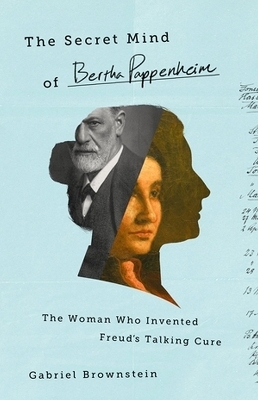
The Secret Mind of Bertha Pappenheim
The Woman Who Invented Freud's Talking Cure
Seiten
2024
PublicAffairs,U.S. (Verlag)
978-1-5417-7464-3 (ISBN)
PublicAffairs,U.S. (Verlag)
978-1-5417-7464-3 (ISBN)
The extraordinary life of a brilliant woman whose contributions to science have been lied about and misused-the Henrietta Lacks of psychoanalysis-and whose mental health struggles look different in light of newly emerging research.
In 1880, young Bertha Pappenheim got sick-she lost her ability to control her voice and her body. She was treated by Sigmund Freud's mentor, Josef Breuer, who diagnosed her with "hysteria." Together, Pappenheim and Breuer developed what she called "the talking cure"-talking out memories so that symptoms go away-and this, Freud acknowledged, became the basis for what would become the theory of psychoanalysis.
In Freud's mythology Pappenheim was renamed "Anna O," and as he got older his stories about her became more extreme. For over a century, scholars have wondered: Was she really sick? Was talking cure really a cure? Amid all this argument a persistent absence has remained: the actual woman, Bertha Pappenheim. Brownstein's book fills this void, and more.
Brownstein gives us the real Pappenheim--a brilliant feminist thinker, a crusader against human trafficking, and a pioneer in her own right--in the hustling and heady world of 19th century Vienna. At the same time, he tells a parallel story that is playing out in leading medical centers today, about patients who suffer symptoms very much like Pappenheim's, and about the doctors who are trying to cure them-the story of the neuroscience of a condition now called FND.
This is a book about science and history and psychology, about the relations of men and women, of body and mind, but perhaps most of all it's about the medical art of listening, attending to patients long enough to acknowledge the reality of their pain.
In 1880, young Bertha Pappenheim got sick-she lost her ability to control her voice and her body. She was treated by Sigmund Freud's mentor, Josef Breuer, who diagnosed her with "hysteria." Together, Pappenheim and Breuer developed what she called "the talking cure"-talking out memories so that symptoms go away-and this, Freud acknowledged, became the basis for what would become the theory of psychoanalysis.
In Freud's mythology Pappenheim was renamed "Anna O," and as he got older his stories about her became more extreme. For over a century, scholars have wondered: Was she really sick? Was talking cure really a cure? Amid all this argument a persistent absence has remained: the actual woman, Bertha Pappenheim. Brownstein's book fills this void, and more.
Brownstein gives us the real Pappenheim--a brilliant feminist thinker, a crusader against human trafficking, and a pioneer in her own right--in the hustling and heady world of 19th century Vienna. At the same time, he tells a parallel story that is playing out in leading medical centers today, about patients who suffer symptoms very much like Pappenheim's, and about the doctors who are trying to cure them-the story of the neuroscience of a condition now called FND.
This is a book about science and history and psychology, about the relations of men and women, of body and mind, but perhaps most of all it's about the medical art of listening, attending to patients long enough to acknowledge the reality of their pain.
Gabriel Brownstein is an associate professor of English at St. John's College. His short stories have been published in The Harvard Review, Francis Ford Coppola's Zoetrope: All Story, and Glimmer Train. He won the PEN/Hemingway Award for his collection of stories, The Curious Case of Benjamin Button, Apt 3W, and his 2005 novel The Man from Beyond was a New York Times Book Review Editor's Choice.
| Erscheinungsdatum | 02.04.2024 |
|---|---|
| Sprache | englisch |
| Maße | 160 x 238 mm |
| Gewicht | 540 g |
| Themenwelt | Geschichte ► Teilgebiete der Geschichte ► Kulturgeschichte |
| Geisteswissenschaften ► Psychologie ► Allgemeine Psychologie | |
| Geisteswissenschaften ► Psychologie ► Biopsychologie / Neurowissenschaften | |
| Geisteswissenschaften ► Psychologie ► Verhaltenstherapie | |
| ISBN-10 | 1-5417-7464-7 / 1541774647 |
| ISBN-13 | 978-1-5417-7464-3 / 9781541774643 |
| Zustand | Neuware |
| Informationen gemäß Produktsicherheitsverordnung (GPSR) | |
| Haben Sie eine Frage zum Produkt? |
Mehr entdecken
aus dem Bereich
aus dem Bereich
der stille Abschied vom bäuerlichen Leben in Deutschland
Buch | Hardcover (2023)
C.H.Beck (Verlag)
CHF 32,15
Die Revolution des Gemeinen Mannes
Buch | Softcover (2024)
C.H.Beck (Verlag)
CHF 16,80


